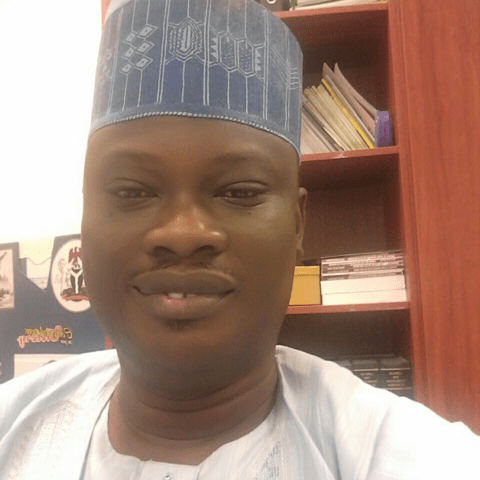The future of history in Nigeria, by Majeed Dahiru

…to preserve the future of Nigerian history, education sector policy makers would do well to ponder a number of relevant issues, for a bad historical narrative is worse than no history of the everything. What is the philosophy behind the reintroduction of history at the basic education level in Nigeria? What are the goals and objectives? And to that end, what kind of history will Nigerian children learn at the basic education level?
After many years of constant advocacy by individuals, critical stakeholders and other interest groups, both within and outside Nigerian academia, the process of restoring the subject of the history at the basic education level may have reached advanced stages. Following its withdrawal in the 2009/2010 academic session amid criticism at the time, the decision of the current administration of President Muhammadu Buhari to reinstate history in the basic education curriculum also received applause and congratulations from concerned Nigerians.
The removal of the subject from the curriculum has been blamed for the poor socio-political upbringing of an otherwise significant proportion of Nigeria's educated younger demographic who have not had the privilege of studying their country's history, in order to become familiar with how the past has led to the present and how the present will shape the future. In addition to what many of the older generation of Nigerians consider to be a low level of pan-African values and poor knowledge of the basics of Nigeria's pre-colonial and colonial past, and its tortuous path to nationhood, alternating between military and civilian rule democracy in the 62 years since independence, among the younger generation of Nigerians, the removal of history from the basic education curriculum has also been held partly responsible for the low level of engagement in the process. politics among the younger generation of Nigerians.
The process of restoring history as a full-fledged subject of study at the basic education level, which began in 2016 with the announcement by the Minister of Education, Mallam Adamu Adamu, of the approval of the National Board of Education at its 61st Ministerial Session, has reached advanced stages with the recruitment of History teachers. At an event marking the return of history to Nigerian basic schools in Abuja on Thursday, November 24, Minister of State for Education, Goodluck Opiah revealed that the Commission for Universal Basic Education (UBEC) has been tasked with recruiting a total of 3,700 teachers to be trained and deployed to classrooms across the country.
While emphasizing in his speech at the launch ceremony, the need to harness the lost original African tradition of storytelling to teach morals and values, in folklores, Minister Opiah expressed his optimism about the return of history to the level of basic education. to help the next generation discover the historical development of their homeland and teach them to avoid repeating the mistakes and failures of the past. And, in conveying the federal government's policy position on the subject, the Minister had this to say: “History underpins the approach and methods deployed to meet our current challenges, particularly with insecurity. We would naturally use historical accounts with the application of experience resulting from the causes of events to solutions using local solutions.
The guiding philosophy for the reintroduction of history at the basic education level in a country like Nigeria which has experienced steady development since its independence in 1960, should be the imperative of NATIONAL UNITY as fundamental condition on which socio-economic development is precedent. But to ensure national unity, there must be social cohesion among the constituent peoples of Nigeria, sufficient to allow for smooth national integration…
"This is usually centered on our ethnic heritage, our cultural host, and our multicultural influences within our particular communities that stem from our common origins. Such grounded teaching and learning provides the opportunity to appreciate backgrounds.. .


…to preserve the future of Nigerian history, education sector policy makers would do well to ponder a number of relevant issues, for a bad historical narrative is worse than no history of the everything. What is the philosophy behind the reintroduction of history at the basic education level in Nigeria? What are the goals and objectives? And to that end, what kind of history will Nigerian children learn at the basic education level?
After many years of constant advocacy by individuals, critical stakeholders and other interest groups, both within and outside Nigerian academia, the process of restoring the subject of the history at the basic education level may have reached advanced stages. Following its withdrawal in the 2009/2010 academic session amid criticism at the time, the decision of the current administration of President Muhammadu Buhari to reinstate history in the basic education curriculum also received applause and congratulations from concerned Nigerians.
The removal of the subject from the curriculum has been blamed for the poor socio-political upbringing of an otherwise significant proportion of Nigeria's educated younger demographic who have not had the privilege of studying their country's history, in order to become familiar with how the past has led to the present and how the present will shape the future. In addition to what many of the older generation of Nigerians consider to be a low level of pan-African values and poor knowledge of the basics of Nigeria's pre-colonial and colonial past, and its tortuous path to nationhood, alternating between military and civilian rule democracy in the 62 years since independence, among the younger generation of Nigerians, the removal of history from the basic education curriculum has also been held partly responsible for the low level of engagement in the process. politics among the younger generation of Nigerians.
The process of restoring history as a full-fledged subject of study at the basic education level, which began in 2016 with the announcement by the Minister of Education, Mallam Adamu Adamu, of the approval of the National Board of Education at its 61st Ministerial Session, has reached advanced stages with the recruitment of History teachers. At an event marking the return of history to Nigerian basic schools in Abuja on Thursday, November 24, Minister of State for Education, Goodluck Opiah revealed that the Commission for Universal Basic Education (UBEC) has been tasked with recruiting a total of 3,700 teachers to be trained and deployed to classrooms across the country.
While emphasizing in his speech at the launch ceremony, the need to harness the lost original African tradition of storytelling to teach morals and values, in folklores, Minister Opiah expressed his optimism about the return of history to the level of basic education. to help the next generation discover the historical development of their homeland and teach them to avoid repeating the mistakes and failures of the past. And, in conveying the federal government's policy position on the subject, the Minister had this to say: “History underpins the approach and methods deployed to meet our current challenges, particularly with insecurity. We would naturally use historical accounts with the application of experience resulting from the causes of events to solutions using local solutions.
The guiding philosophy for the reintroduction of history at the basic education level in a country like Nigeria which has experienced steady development since its independence in 1960, should be the imperative of NATIONAL UNITY as fundamental condition on which socio-economic development is precedent. But to ensure national unity, there must be social cohesion among the constituent peoples of Nigeria, sufficient to allow for smooth national integration…
"This is usually centered on our ethnic heritage, our cultural host, and our multicultural influences within our particular communities that stem from our common origins. Such grounded teaching and learning provides the opportunity to appreciate backgrounds.. .
What's Your Reaction?






















